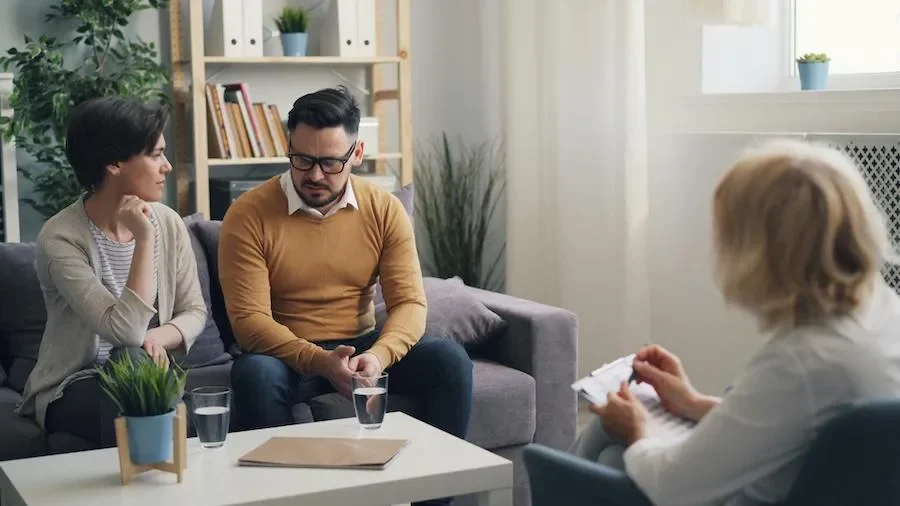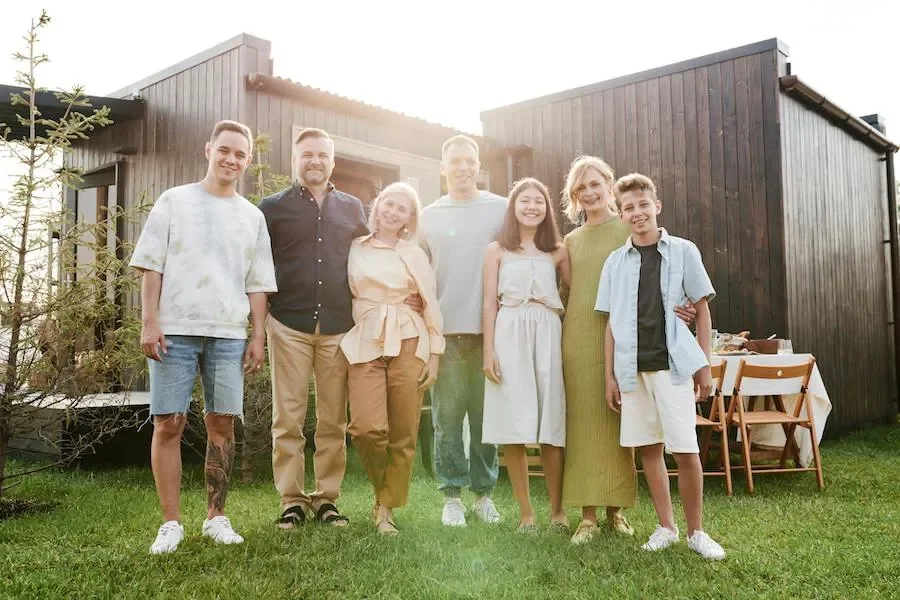Are You Facing Divorce And Need Support?
Have you and your partner decided to divorce and feel overwhelmed with grief, disappointment, and sadness? Are you mutually committed to getting through your dissolution as amicably as possible? Would you benefit from working with a counselor with experience as a mediator who can support you through the divorce process?
If you are on the threshold of divorce, life probably seems messy and chaotic, much like the roof of your house being ripped off. Shifting gears from trying to salvage your relationship to realizing that divorce is inevitable can be an anguishing experience that takes time to process. Perhaps you aren’t emotionally prepared to think about separation and determine whether financial or logistical restraints may prevent you from taking immediate action. All of it may feel too overwhelming to navigate alone.
Where Do You Begin?
You may be unsure how to formulate rules and expectations as you both navigate this unknown territory with wounded feelings. Meanwhile, you can tell the kids have noticed something is wrong and you realize you need to have a difficult conversation with them sooner than later. But until you have a firm action plan, you’re not sure what to tell them, leaving you stuck.
Maybe you hope for a peaceful blended family once all is said and done, but you don’t know how to achieve that. With so many unknowns, you may feel overwhelmed and terrified by taking the first step. After all, taking action makes it real, and you dread how awful the next several months will be for everyone. But despite your uncertainty, you each understand the importance of respecting each other and the family you’ve created.
Fortunately, therapy provides the emotional support and practical guidance you need to get through your divorce amicably. Divorce counseling can help you process your grief and create a values-based family structure that thrives on effective co-parenting and mutual respect.
Our Ideas About Divorce Are Often Worst-Case Scenarios
We’ve all seen the TV shows and movies and heard anecdotally about nightmare divorces. In particular, pop culture paints a bleak picture of warring spouses spending untold thousands of dollars on vindictive-fueled litigation. After a protracted battle over assets and custody, both sides are left scarred and embittered. Ultimately, neither party prevails.
No wonder facing the prospect of divorce is so terrifying. In addition to the intense grief we experience when we let go of the idea of a lifelong partnership with each other, we are expected to navigate a complex legal system and simultaneously ensure we protect our interests. But most of all, we have to consider how our dissolution will impact the children and try to do everything we can to protect them from emotional fallout.
What If There Was A Better Alternative To An Acrimonious Divorce?
The good news is that in recent years, more and more couples have chosen the path of conscious uncoupling and mediation over the more litigious divorce route. “A recent Custody X Change study found that 93 percent of divorcing parents tried an alternative dispute resolution method. Slightly more than half of all respondents used mediation.” [1]
Rather than the divorce process becoming a contentious fight, “conscious uncoupling emphasizes the importance of letting go with love and integrity.” [2] This approach reflects the respect and care partners have for each other above all else, allowing them to enter into mediation collaboratively and decide what happens with full autonomy and participation.
But even in the best of circumstances, there’s so much at risk that can affect you and your family's future. It’s worthwhile getting full-spectrum counseling throughout the process to address the emotional aspects of separation and divorce in real-time.
Divorce Counseling Can Help You Achieve Conscious Uncoupling Amicably
As you embark on divorce, the choices you and your spouse make will have a lasting impact on you and your children. As your therapist, I want to help you experience both the relief and pride that comes with choosing cooperation, love, kindness, and respect for each other. By showing up in this way, you honor your shared life, your marriage, and your family. What’s more, you will model this value for your children, who will look back on how you handled this with gratefulness and deep respect for you.
What To Expect In Sessions
Therapy will consist of joint and individual sessions that emphasize your shared goals. I will also support your individual needs and unique experiences of the divorce process while staying focused on your present and future goals and shared vision for your family.
If you are early into the divorce process, we will identify the first steps—such as securing mediators or non-litigious attorneys—determine who will leave the family home and where they will go, or, perhaps, how long physical separation may need to be delayed due to logistical or financial reasons. If papers have already been filed and you are physically separated, we will focus on defining your new family structure, creating and maintaining an equitable co-parenting schedule, and how to support the kids as they adjust to the new normal.
Throughout the divorce process, you will receive emotional support as you work through your grief, frustration, sadness, and anger. I will help you process complex feelings while keeping them contained when needed so we can eventually return to a future-focused mindset that identifies family strengths and values. I may incorporate solution-focused skills, grounding, deep breathing, and mindfulness into therapy—with somatic techniques, trauma-informed care, and an attachment-based approach as needed.
How Divorce Counseling Differs From Mediation
Divorce mediation is logistical, not emotional. It involves the legal process and walks you through the specific terms of your divorce with the mutual goal of creating an agreement that is fair to both parties—and a judge will have to approve. Divorce counseling helps you navigate the nuanced, emotion- and attachment-based aspects of dissolution, such as how to talk to your children, process grief, maintain respect, and identify shared values and boundaries for the new family system. Working with a divorce counselor also provides an opportunity to understand the patterns that got you stuck and ways to avoid making similar mistakes in the future.
As a trained divorce mediator and therapist, I'm familiar with this process and helped numerous clients navigate it. However, in my role as a therapist, I cannot offer legal or financial advice. I encourage you to work closely with a mediator, attorney, and/or financial advisor, if appropriate.
Who you choose to be right now will be a defining moment in your life. Although this won’t be an easy process for either of you, you can do it. I have worked with clients who begin this process with a broken heart but are committed to grace, love, and respect for each other despite their differences. It's never perfect, but I will stand with you to ensure you reach the other side.
But Maybe You’re Not Sure If Divorce Counseling Is Right For You…
How do we know if divorce counseling will be a worthwhile path for us?
Therapy can help you commit to a conscious uncoupling that prioritizes co-parenting amicably and puts your children’s needs first. It’s normal to feel angry, frustrated, and wounded at times. In therapy, we can find a way through the difficult emotional moments of divorce to ensure you maintain an acceptable level of cooperation. However, if your relationship is already contentious or a significant perceived power imbalance exists in any area, divorce counseling probably won’t be helpful.
We don’t have time to attend uncoupling therapy consistently.
Unlike other types of counseling, divorce therapy doesn’t require you to attend sessions weekly. While it’s important to prioritize our sessions during pivotal decisions, uncoupling therapy reflects the ebb and flow of the divorce process. Although we may meet more frequently initially, we will pause therapy while you take other legal or financial steps in between sessions when appropriate and as needed.
Do you also provide counseling and support to individuals going through separation or divorce?
As an experienced therapist and mediator, I work with both individuals and couples in the midst of divorce. However, I’m most passionate about counseling for divorced couples that focuses on collaborative conscious uncoupling. After witnessing firsthand how separation and divorce therapy create a lasting legacy of love and kindness for families, I am eager to share this experience with you.
Well-Rounded Support Throughout Your Divorce Is Available
The benefits of successful conscious uncoupling counseling can positively impact future generations. To learn more about couples divorce therapy with Live Oak Counseling, please visit my contact page or call 203-561-1675 for more information.
[1] https://www.mediate.com/what-the-statistics-tell-us-about-divorce-and-custody-mediation/
[2] https://thelimitlessinstitute.com/conscious-uncoupling-how-to-let-go-with-love-and-integrity/
Recent Posts
Divorce Counseling in Boston, MA
867 Boylston St 5th Fl
Boston, MA 02116





